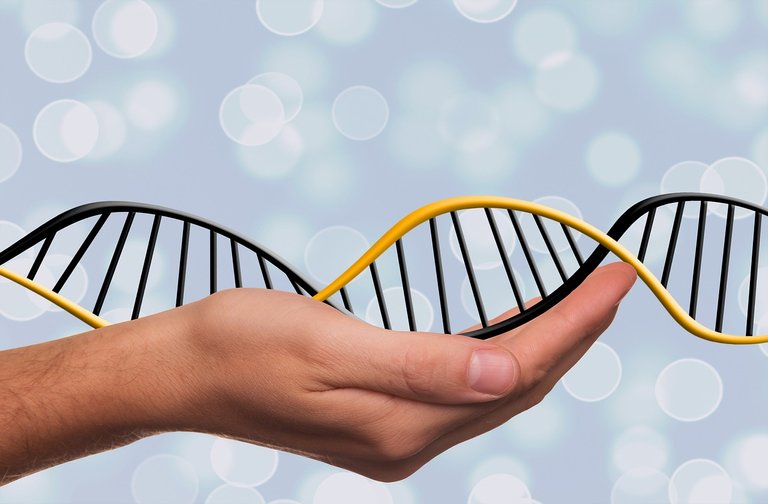Epigenetics Unveiled: The Dance of Genes and the Symphony of Life.
Greetings, science enthusiasts! In one of my previous articles (link), I touched upon the fascinating world of epigenetics, a realm where the magic of gene expression unfolds in awe-inspiring and mysterious ways. Today, we're going to delve deeper into the role of epigenetics in gene expression. But don't worry, we're not here for a dull lecture. We're on a mission to make this scientific journey engaging and thought-provoking. So, are you ready to take the plunge into the captivating universe of epigenetics?

Epigenetics 101 - Using Analogies.
Your genes are the fundamental instructions for your body, much like a script for a play. Epigenetics acts like an editor or director, influencing when and how specific parts of that script are used, meaning, they have the power to switch genes on or off.
One crucial aspect of epigenetics is DNA methylation. It's like putting markers on certain lines of the script. These markers can either signal that a gene should be active or keep it silent. Another element is histone modification, which can be thought of as adjusting the lighting in a theater. It decides whether a gene is readily accessible for action or dimmed, keeping it backstage.
What's fascinating is that your DNA, the script, stays mostly the same throughout your life, but the epigenome, like the director, can change in response to your surroundings and experiences. It's this dynamic interplay that regulates when and how genes are expressed.
Environmental Impact
Have you ever thought about how the world around you can leave its mark on your genes? It's like inheriting a family story not just from your parents but from your grandparents too. Imagine this: if your grandparents faced tough times like food shortages when they were young, it might have actually left an imprint on their genes. Now, this isn't some distant history lesson; it's relevant to you today.
Here's where it gets fascinating. Research has shown that the grandchildren of those who endured such hardships had different "marks" on their genes. It's like inheriting an extra layer of history through your DNA. But what's the real-life impact of this genetic legacy? Does it affect your health, your choices, or your destiny in some way? These are questions that not only connect you with your past but also hint at the mysterious ways our genetic heritage influences our future. It's a genetic puzzle waiting to be unraveled.
Development and Cell Differentiation
Remember those early days when you were just a bundle of cells, far from being the complex individual you are now. What made this remarkable transformation possible? Epigenetics, acting as a meticulous choreographer, orchestrated this awe-inspiring process. Imagine that your genes are a vast ensemble of performers, each with a unique role to play. Some genes are supposed to function in your liver, while others have their place in your muscles. In other words, your genes have distinct jobs in the grand production of "You."
Epigenetics, our behind-the-scenes job manager. It ensures that the right genes are active in the right places at the right times, much like a choreographer who guides dancers through their precise movements. This coordination is essential because your liver doesn't need the instructions meant for your biceps, and vice versa.
Epigenetics doesn't just decide which genes get to perform; it also influences how these genes express themselves, fine-tuning the harmony of your body's functions. It's this complex control system that allows your body to develop and maintain its incredible complexity. In the grand theater of life, epigenetics is the conductor, making sure every genetic player hits their cues flawlessly.
Disease and Disorders
In the world of genes, there are times when the conductor,"epigenetics", doesn't manage the orchestra as it should. This can lead to issues like cancer, where genes that should be quiet become too noisy. The question scientists are working on is: can we fix this conductor and get the gene orchestra back in tune in ensuring that the right genes play their roles while preventing the problematic ones from causing trouble? This is an exciting area of research that could result in new and improved treatments for various diseases. If you have any thoughts or suggestions about this, the whole world is all ears!
Conclusion:
And so, we reach the end of our expedition into the intriguing realm of epigenetics. It's a world where genes, the blueprints of life, are not just fixed scripts but dynamic tales that adapt and respond to our environment and experiences. Epigenetics, our director, influences which genes take the center stage and which ones stay in the shadows. DNA methylation and histone modifications act as the directors of this grand play, marking the script and adjusting the lighting to determine which genes are active and when. But epigenetics is not just a passive spectator; it's an active choreographer during our development, ensuring each gene performs in its assigned role. It's this precise coordination that results in the beautiful complexity of the human body.
As we reflect on our journey into the world of epigenetics, we must ask ourselves: how will this knowledge reshape our future? Can it lead to personalized medical treatments or provide deeper insights into our family histories? The symphony of life continues, and we're only beginning to grasp its intricate notes. So, let's keep questioning, exploring, and uncovering the secrets of this captivating scientific landscape.
Thanks for your contribution to the STEMsocial community. Feel free to join us on discord to get to know the rest of us!
Please consider delegating to the @stemsocial account (85% of the curation rewards are returned).
Thanks for including @stemsocial as a beneficiary, which gives you stronger support.